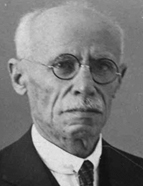

As seen from reading the writings of these years, this period represented an internal and cultural, historiographical and civilisational debate that the author experienced intensely. This heralded the third phase of his cultural life, according to Jorge Borges de Macedo ’ s critical appraisal: the second editions of some of his works appeared: Os Jesuítas no Grão Pará [The Jesuits in Grão-Pará] , O Marquês de Pombal e a sua época [The Marquis de Pombal and his time] , Judeus [Jews] , Cristãos Novos e a Inquisição [New Christians and the Inquisition] , Sebastianismo [Sebastianism] , the great overviews of economic history in História de Portugal de Barcelos [Barcelos’ History of Portugal] at the invitation of Damião Peres, his participation in Albino Forjaz de Sampaio ’ s História da Literatura Portuguesa Ilustrada [History of Ilustrated Portuguese Literature ] (vol. III, Lisbon, 1928), Épocas de Portugal Económico [Times of Economic Portugal] , Esboços de História [Sketches of History] (1929), ‘Algumas notas relativas a apontamentos de História Social’[Some notes on Social History], in Miscelânea de estudos em honra de D. Carolina Michaelis de Vasconcelos [Miscellany of studies in honour of D.Carolina Michaelis de Vasconcelos] (1930), Novas Epanáforas, Estudos de História e Literatura [New Epanaphors, Studies in History and Literature] (1932).
Lúcio d’Azevedo also collaborated with other publications and journals, including Arquivo de História e Bibliografia [History and Bibliography Archive] , Lusitânia , O Instituto [The Institute] , Portugalia , Revista do Instituto Histórico e Geográfico Brasileiro [Journal of the Brazilian Historical and Geographical Institute] , Revista do Brasil [Brazilian Magazine] and Revista de Língua Portuguesa [Portuguese Language Magazine] . It would be in the interest of Portuguese culture to deepen the relationship between all these Portuguese and Brazilian journals. In the author ’ s cultural production in this 3 rd phase, Nação Portuguesa [Portuguese Nation] stands out. There is a cultural relationship between the two periodicals, Revista de História [History Journal] and Nação Portuguesa [Portuguese Nation] , which was confirmed at the start of the latter ’ s 2 nd series in 1922, as well as in other events. While in the former, the author presented the sketches of his História dos Cristãos Novos Portugueses [History of the Portuguese New Christians] , in the latter, in no. 2, as early as 1922, the writer mentioned this work with the highest praise: ‘We have the highest intellectual regard for Mr J. Lucio d ’ Azevedo. We may not agree with some aspects of his work or others . That does not inhibit us from recognising that it does great honour to our historiography. Apart from the natural exception of the illustrious master Gama Barros, if there is a historian in Portugal at the present time worthy of such a name, it is, in all fairness, Mr Lúcio d ’ Azevedo’. The work História de António Vieira [History of António Vieira] is also mentioned, but with certain criticisms because, according to the review, there was a certain anti-Jesuitism and ‘a poorly repressed Romanesque commiseration for the Jews’, which is why Historia dos Cristãos Novos Portugueses [History of the Portuguese New Christians] was considered a ‘fundamental work, although not (...) definitive’. In short, the Nação Portuguesa [Portuguese Nation] considered that the author ’ s work marked ‘the advent of a new spirit in the fields of national historiography’.
This work is financed by national funds through FCT - Foundation for Science and Technology, I.P, in the scope of the projects UIDB/04311/2020 and UIDP/04311/2020.
